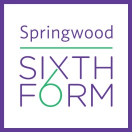Computer Science
|
"Learning to code is useful no matter what your career ambitions are.” |
|---|
This specification has been designed for students who wish to go on to higher education courses or employment where knowledge of Computer Science would be beneficial. The course is not about learning to use tools or training in a programming language instead the emphasis is on computational thinking, a kind of reasoning used by both humans and machines.
It is a practical, creative subject that combines invention and excitement. It values computational thinking helping learners to develop skills to problem solve, design systems and understand the power and limitations of human and machine intelligence.
Learners will develop an ability to analyse, critically evaluate and make decisions.
“At its heart lies the notion of computational thinking: a mode of thought that goes well beyond software and hardware, and that provides a framework within which to reason about systems and problems.” (CAS-Computer Science a Curriculum for Schools)
Inspire all students to develop technical understanding and the ability to analyse and solve problems using computational thinking. Studying A level provides the opportunity to transfer academic principals of computer science into creating real world systems through the production of an independent programming project designed to solve a real problem for real individuals. This culminates in preparing students to study at the next level in such a diverse field and to become a true contender in this growing industry.
Entry Requirement
A minimum of grade 4 in Maths and English Lang plus at least 3 other GCSEs at grade 5
Subject Specific Requirements
Grade 5 in Computer Science or merit in BTEC LEVEL 2 ICT /OCR IT (programming experience preferred.)
Grade 5 in Maths
A Merit in a Vocational ICT qualification. Will be considered
Assessment
The emphasis is on programming, algorithms, problem solving, thinking skills and mathematics. There are three units to the qualification.
Unit 1 - Computer Systems - O1
Students gain an appreciation of computing fundamentals including hardware, software as well as the presentation, structure and management of data. They look at the systems life cycle, characteristics of information systems and the implications of computer use.
Legal, moral and ethical issues.
Assessed by 2.5 hour examination; 40% of the marks
Unit 2 - Algorithms and Programming - O2
Students gain an appreciation of computational thinking, programming and problem solving, pattern recognition, abstraction and decomposition, algorithm design and efficiency.
Assessed by 2.5 hour examination; 40% of the mark
Unit 3 - Programming Project - O3
Students select their own problem of a suitable size and complexity. Students analyse the problem, implement the solution and provide a thorough evaluation.
Assessed by coursework; 20% of the marks
Future Applications
One can study Computer Science and go on to a career in: medicine, law, business, politics or any type of science.
Alternatively, there are many career paths within the discipline Including: 3D animator, games developer, graphic designer, network administrator, programmer, software developer, system analyst, hardware developer, database administrator and web designer.
Alumni
Danny and Fergus graduated with First Class honours and were among just 15 games programmers graduating this year to be awarded Graduate of the Year 2022 by TIGA, an accredited games awards organisation. Danny was approached by Playground, (Forza Horizon), Fergus has taken a position with Creative Assembly
